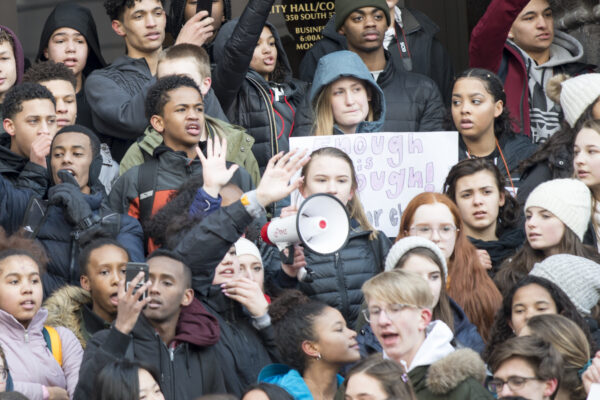In anticipation of the planned student walkouts across Idaho, in coordination with walkouts across the country to protest gun violence, the ACLU of Idaho sent a letter to Idaho public schools to provide information about ensuring students' free speech rights. Find a copy of the letter at the bottom of this page.
Specifically, we asked that school officials remember:
- Treatment that is different in kind and degree for participating in political speech and activities outside of school violates students’ constitutionally protected rights. Schools cannot apply policies regarding unexcused absences any differently in response to students participating in political activities off-campus than they would for unexcused absences for other reasons.
- Students can wear clothes or garments expressing their beliefs and political viewpoints so long as the content is not lewd or vulgar and does not create a substantial disruption of school functions and complies with any school dress codes.
- If your school allows non-curricular clubs, you cannot discipline students for the content of their speech simply because it is political or from a particular point of view.
- When students are off-campus and in the community, their rights to express themselves and protest are the same as anyone else’s.
Idaho educators must protect students' First Amendment rights, regardless of the student's viewpoints and regardless of where they fall on the political spectrum. Even beyond that, our letter asks that schools embrace--rather than discourage--students' attempts to demonstrate their concerns in a peaceful manner.
Almost a half century ago, the "Tinker kids" in Des Moines, with the help of the ACLU, spoke out at their schools by wearing black armbands to protest the Vietnam War. At the time, the school district fought their right to do that all the way to the U.S. Supreme Court, where the Tinkers set an important precedent for student political speech rights. Now, that same school district has welcomed the adult Tinkers to speak in schools about student rights and even put special plaques on their lockers to honor their legacy.
The Tinker case is an excellent, homegrown illustration of the power of students’ peaceful demonstration can play in our democracy, no matter what the topic and no matter where they are on the political spectrum. This current wave of student activism is part of a rich American tradition.

